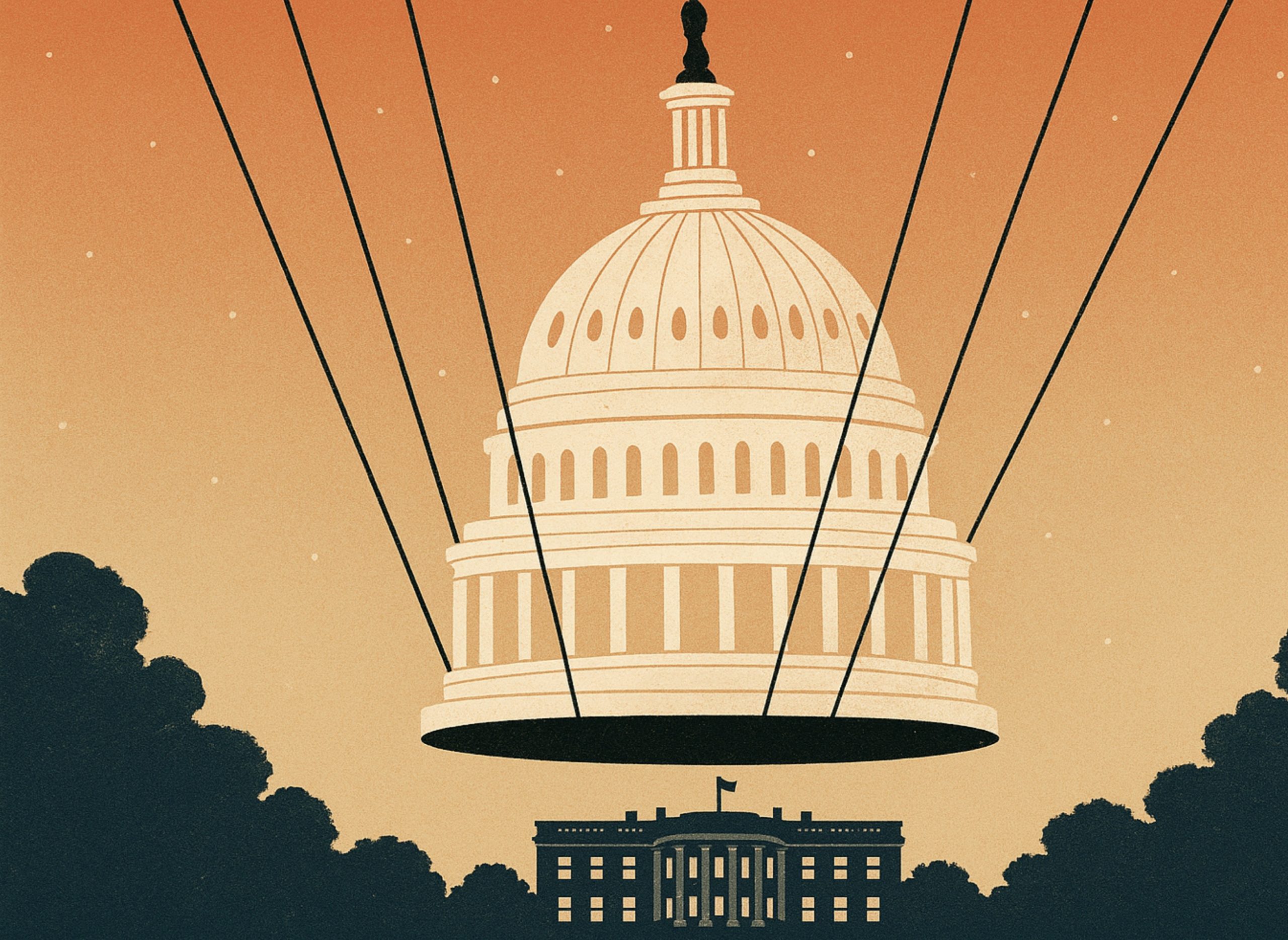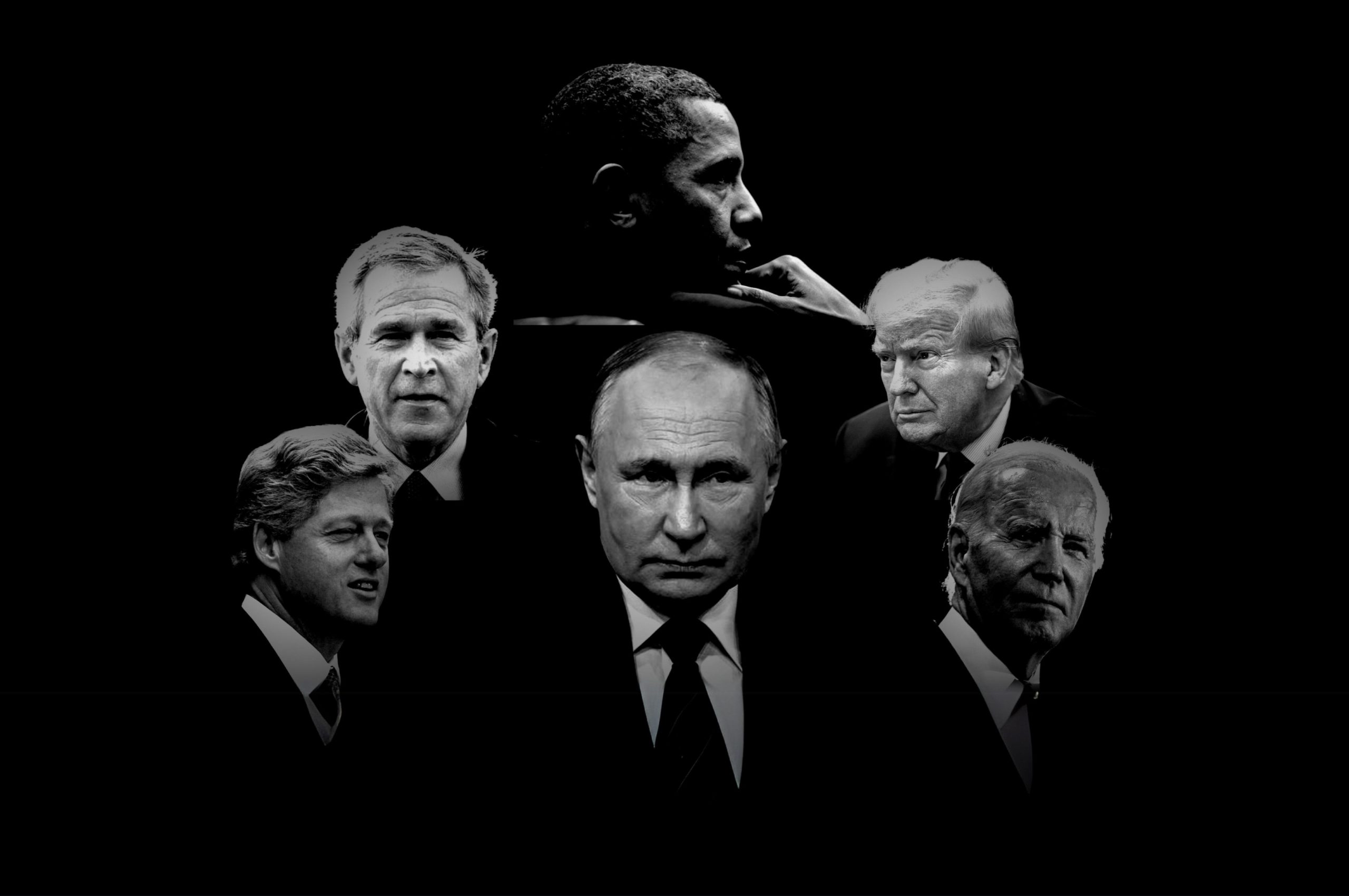How many children? Counterparts are left guessing about his true motivations . Putin exploits his meetings as publicity stunts to promote his cult of personality. A future president will meet with a Sphinx. Second, before any meeting Putin prepares a psychological profile. Doing his homework, he seizes on his interlocutors’ dreams, flaws and phobias. Putin, moreover, will exploit any vulnerability to throw an opponent off-guard. Facing criticisms from the famous musician Yuri Shevchuk Putin pretended not to know his name. To scare Angela Merkel, Putin brought fearsome dogs to a meeting. With Trump, it was beautiful women.
Third, Putin, a fan of Henry Kissinger, is hard-headed. He tries to fit his goals with the underlying self-interests of others. As in the Godfather, ‘Nothing personal, just business.’ Fourth, often, especially with Westerners, emotions get the better of him. Putin can turn rivalry into macho showdowns. In these cases, he wants to see opponents humiliated: Boris Berezovsky, Boris Nemtsov, Mikheil Saakashvili, Aleksei Navalny. Finally, Putin’s approach greatly contrasts with the American approach based on institutional rules, morals and values. This has led, over the years, to a downward spiral of recriminations.
Putin and Bill Clinton (1999-2001)
Russians tended to view Clinton as an otherworldly wizard. America, a far-off wonderland, seemed to possess unlimited military and economic power. On Russian TV, Clinton was seen playing the saxophone. Salacious accounts of Monica Lewinsky bolstered Clinton’s macho image. Putin realized that his country was viewed as an embarrassing basket case. Clinton’s vice-president, Albert Gore, had pinned his own presidential hopes on his experience as an urbane Russian hand who had transformed the Communists evil empire into a flourishing democracy. Instead, Republican-led Congressional hearings depicted Russia as a degraded mafia-state. Yeltsin was an unstable drunkard.
Putin adroitly stepped into the image of an anti-Yeltsin, an athletic dependable leader. Putin, moreover, exploited the West’s pleas to fight corruption. By riding the streets of casinos and prostitutes Putin shored up his image both at home and abroad. In fighting corruption, Putin systematically took down his political rivals, the oligarchs. A serious point of contention between Russia and Clinton was the Yugoslav crisis. The vast majority of Russians thought that the West was unfairly demonizing their traditional ally, the Serbs and siding with Muslim minorities. This reminded them of Chechnya. The NATO bombing of Serbia horrified the Russian public. Inheriting a standoff, Putin skillfully distanced himself from hardliners such as Yevgeny Primakov. But at the same time Putin realized he had a card to play against a seemingly omnipotent West. He could moderately object to the West’s campaign earning admiration at home while forcing concessions from the West. Wishing to avoid another violent breakup, Clinton let Putin apply a heavy hand in Chechnya.
Putin and George W. Bush (2001-2009)
For Putin, George Bush offered a welcome change from Democratic moralizing. A Republican from a famous dynasty, Bush, it was hoped, would focus less on human rights. Instead, oil and gas would form the basis for interactions. The 9/11 terrorist attacks in 2001 presented another opportunity. Putin, the first to call G.W. Bush realized America’s focus would shift to fighting Islamic terror. This would fit in with Putin’s own program of pacifying the Caucasus regions. America, moreover, would do Russia’s dirty work in Afghanistan.
But the attempt to form a heart-to-heart relationship soon backfired. For Putin, friendship implies informal agreements and obligations. Putin had agreed to help America with military air bases in Russia and Central Asia. Bush, it seemed to Putin, had implicitly agreed to not harm Russian interests. Then Bush unilaterally decided to prosecute the 2003 Iraq War. For Putin, the real stab in the back came when America supported a pro-Western, Viktor Yushchenko over the Kremlin-backed Yanukovych in a disputed election in Ukraine. Iraq had shown America’s military might, but now the threat of a ‘hybrid’ Color Revolution threatened close to home.
Fears of Western expansionism seemed to be confirmed by talk (in February 2008) of offering NATO membership to Ukraine and Georgia. As William Burns, then US Ambassador to Russia, reported this was a Russian redline. As a consequence, Russia pushed back ferociously against the pro-Western Mikhail Saakashvili during the Georgian War. Betrayed by his ‘friend’ G.W. Bush, Putin saw the West as a deceitful wolf. But as opposed to the Clinton years, Putin now saw that American goliath could be countered: economically, through Russian oil, informationally through Russia Today, and even militarily, though focused interventions.
Putin and Barack Obama (2009-2017)
Putin viewed Obama with condescension. He seemed to spout PR about ‘hope’ while fomenting American exceptionalism and imperialism. In Putin’s eyes, Obama was an affirmative-action know-nothing. Worse yet, he was henpecked by female neocon hawks, Hillary Clinton and Victoria Nuland. (In Russian culture, assertive female politicians have been dealt with harshly. Maria Spiridonova and Valeriya Novodvorskaya were placed in psychiatric wards.)
Cynically, Putin placed a vapid frontman, Dmitri Medvedev, as ‘Prezident’ while Putin and Nikolai Patrushev dealt with real (male) leaders in the shadows. The “reset” policy promoted by Obama’s Russia hand, Michael McFaul, was viewed cynically. Putin now felt he could fool and cower the West. Putin was bemused, and then outraged, when American officials treated Medvedev as a genuine president. Obama’s devious minions were encouraging Medvedev to dismiss Putin. For Putin, Obama’s hand was behind the 2012 Moscow street protests.
But it was the toppling of Yanukovych during Ukraine’s Maidan protest in 2014 that completely enraged Putin. This was an American coup that required military intervention. Putin decided to annex Crimea. In Putin’s eyes, the Monroe Doctrine, as interpreted by Theodore Roosevelt, justified American intervention in Latin America. Didn’t Russia have a right to protect its own backyard? Why couldn’t Obama understand this? The entire world became a manly chess game, with a winner or loser. There could be no partnerships. This was how Putin viewed the Syrian civil war
Putin and Donald Trump (2017-2021)
Putin was stunned by Trump’s victory and didn’t know what to make of him. Indeed, Trump enjoys popularity among everyday Russians, a rarity for American figures. At first, Trump was compared to Russian demagogic firebrands, such as Vladimir Zhirinovsky. But Zhirinovsky was a KGB man who headed a Kremlin-run front-party. In reality, Russia holds few analogies to Trump. Putin saw Trump as naïve in international affairs. At a press conference, he tried to school him as an elder who tutors a student. But while the Russian public was initially hopeful that “our Trump” could bring a new détente, Putin was skeptical.
Putin could never understand the allegations of Russian interference in US elections: the posting of a few Facebook pages by a Prigozhin troll farm. There was an impenetrable cloud of Western media talking points that perplexed Putin. Were Western analysts serious that Trump was a ‘Siberian candidate’? It seemed that the West was going crazy. In fact, under Trump’s Russia hand Fiona Hill, America took a hard line. Russia’s new gas pipeline to Germany was blocked. Ukraine received increasing covert military support. In 2017, Trump, moving past what the Obama administration allowed, sent Javelin anti-tank missiles to Ukraine. Putin concluded only force could resolve his conflicts with the West.
Putin and Joe Biden (2021-Present)
Biden and Putin only despise one another. Their interactions occur, often covertly, only through intermediaries: Victoria Nuland, Anthony Blinken, and Bill Burns vs. Nikolai Patrushev and Sergei Naryshkin. Putin and Biden thus interact with each other from afar. Their negotiations concern the ever-shifting redlines. In what cases would Russia use nuclear weapons? What would be Biden’s response? Biden openly wishes for Putin to be toppled or killed. Putin, akin to Kim Jong Un, uses appearances to ‘signal’ deterrence.
Thanks to his nuclear saber-rattling, Putin has convinced Biden to slow and limit aid. As opposed to the Cuban missile crisis, it is Biden who has blinked. Putin feels there will be little difference between a Harris or Trump administration. Russia is in a ruthless, long-term marathon struggle with the West. But reviewing this history, we see that Putin responds to hard-headed, Realist proposals and cynically mutually beneficial partnerships. Perhaps on this basis, a future US president will find some grounds for dialogue.


